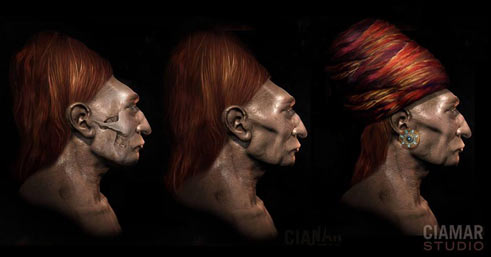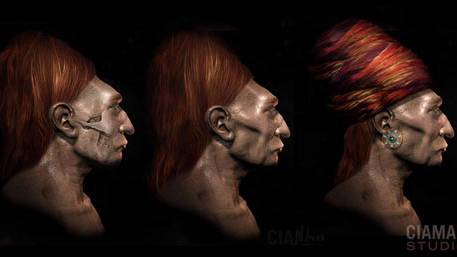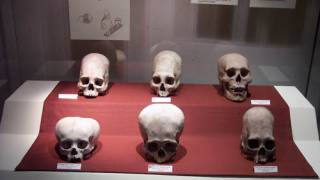Initial DNA analysis of Paracas elongated skull released – with incredible results
Source: ancient-origins.net
Paracas is a desert peninsula located within the Pisco Province in the Ica Region, on the south coast of Peru. It is here were Peruvian archaeologist, Julio Tello, made an amazing discovery in 1928 – a massive and elaborate graveyard containing tombs filled with the remains of individuals with the largest elongated skulls found anywhere in the world. These have come to be known as the ‘Paracas skulls’. In total, Tello found more than 300 of these elongated skulls, which are believed to date back around 3,000 years. A DNA analysis has now been conducted on one of the skulls and expert Brien Foerster has released preliminary information regarding these enigmatic skulls.It is well-known that most cases of skull elongation are the result of cranial deformation, head flattening, or head binding, in which the skull is intentionally deformed by applying force over a long period of time. It is usually achieved by binding the head between two pieces of wood, or binding in cloth. However, while cranial deformation changes the shape of the skull, it does not alter its volume, weight, or other features that are characteristic of a regular human skull.

The Paracas skulls, however, are different. The cranial volume is up to 25 percent larger and 60 percent heavier than conventional human skulls, meaning they could not have been intentionally deformed through head binding/flattening. They also contain only one parietal plate, rather than two. The fact that the skulls’ features are not the result of cranial deformation means that the cause of the elongation is a mystery, and has been for decades.
[...]
The results are now back, and Brien Foerster, author of more than ten books and an authority on the ancient elongated headed people of South America, has just revealed the preliminary results of the analysis. He reports on the geneticist’s findings:
It had mtDNA (mitochondrial DNA) with mutations unknown in any human, primate, or animal known so far. But a few fragments I was able to sequence from this sample indicate that if these mutations will hold we are dealing with a new human-like creature, very distant from Homo sapiens, Neanderthals and Denisovans.
The implications are of cause huge. “I am not sure it will even fit into the known evolutionary tree,” the geneticist wrote. He added that if the Paracas individuals were so biologically different, they would not have been able to interbreed with humans.
Read the full article at: ancient-origins.net
Related Red Ice Radio programs:
Lloyd Pye, Brien Foerster & Jerry Wills - Hour 1 & 2 - Human Origins & Lost Races
Richard J. Dewhurst - Hour 1 - The Ancient Giants Who Ruled America
David Hatcher Childress & Brien Foerster - Mystery of the Ancient Elongated Skulls & The Inca Before The Conquest
Ross Hamilton, Jim Vieira & Hugh Newman - Hour 1 - Giants, Mound Builders & Etheric Energy
Ralph Ellis - Hour 1 - King of Edessa & The Omphalos Stone
Klaus Dona - Unsolved Mysteries, Giants & Out of Place Artifacts
Anton Mifsud - Malta’s Ancient Megalitic Temples, Giants & Traces of the Lost Atlantis






















